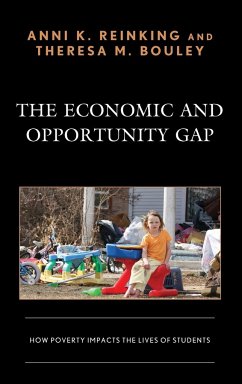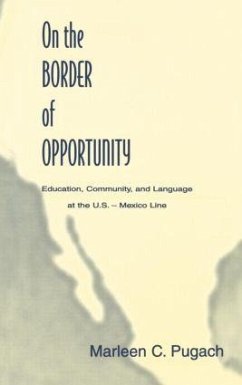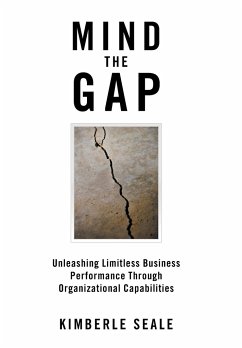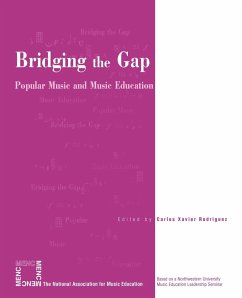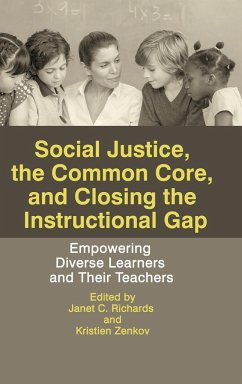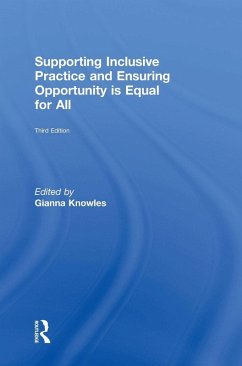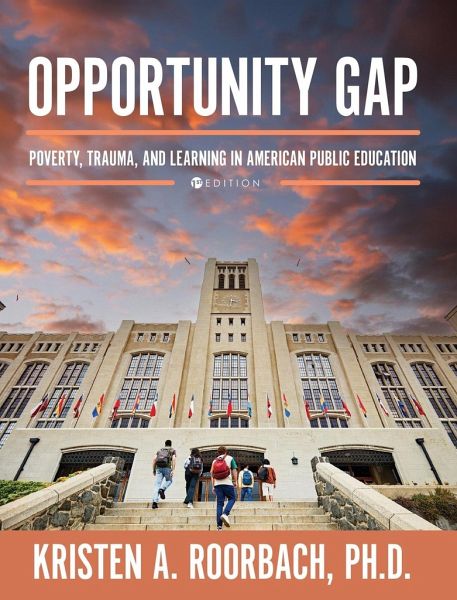
Opportunity Gap
Poverty, Trauma, and Learning in American Public Education

PAYBACK Punkte
45 °P sammeln!
Opportunity Gap: Poverty, Trauma, and Learning in American Public Education examines the ways in which economic, social, and environmental risk factors can impact students' opportunities to access equitable education practices. Part I provides readers with a framework for understanding achievement and how a student's access to opportunities impacts their academic success. It also explores American education policy from a historical perspective and identifies current policies that inform the education process within the context of poverty. Part II paints a picture of poverty in U.S. schools, id...
Opportunity Gap: Poverty, Trauma, and Learning in American Public Education examines the ways in which economic, social, and environmental risk factors can impact students' opportunities to access equitable education practices. Part I provides readers with a framework for understanding achievement and how a student's access to opportunities impacts their academic success. It also explores American education policy from a historical perspective and identifies current policies that inform the education process within the context of poverty. Part II paints a picture of poverty in U.S. schools, identifying the compounding effects of factors associated with poverty and their impact on learning. Readers learn how policy, research, and practice work together to provide a framework for reform. In Part III, readers explore the highly predictive relationship between poverty and trauma. The neurobiological effects of poverty on early development, the role of poverty in adverse childhood experiences, and the intersection of nature and nurture are discussed. The final part presents a theoretical framework for closing the opportunity gap that leverages resilience and student-level strengths as well as systems-level policy changes that can lead to greater access to opportunity for students affected by poverty and trauma. Opportunity Gap is an ideal resource for students of education and mental health policy, pre-service and current educators, as well as school administrators, mental health practitioners, school counselors, and others who work within the school system.





